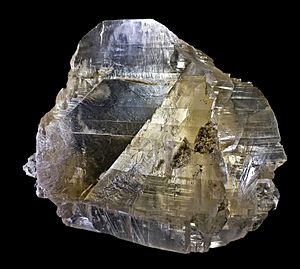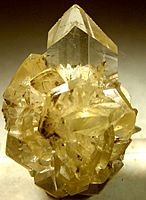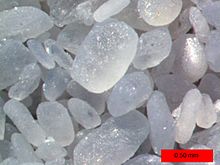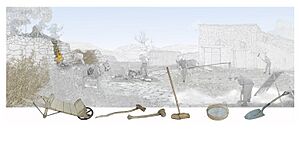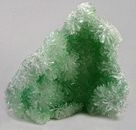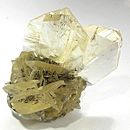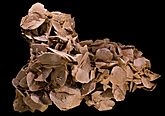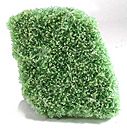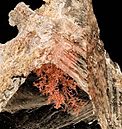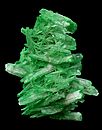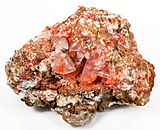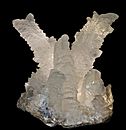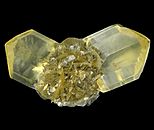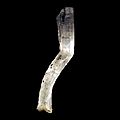Gypsum facts for kids
Gypsum is a common mineral found all over the world. It's a soft, white rock that's made of a chemical compound called calcium sulfate. People have used gypsum for a very long time, even since the Neolithic period (the New Stone Age, thousands of years ago). Today, gypsum is a main ingredient in plaster and drywall, which are used to build houses. It's also helpful as a fertilizer to make plants grow better.
Contents
Where We Find Gypsum
Gypsum is found in many places around the world. Some of the countries where a lot of gypsum is mined include Brazil, Pakistan, Iran, Thailand, Spain, Germany, Italy, England, Canada, and the United States.
There are huge open-air mines, called quarries, in places like Fort Dodge, Iowa, and Plaster City, California, in the United States. Fort Dodge has one of the biggest gypsum deposits in the world! In Western Australia, smaller mines sell gypsum to farmers. Farmers use it to add important nutrients like calcium and sulfur to their soil, which helps their crops.
Giant Crystals in Mexico
One of the most amazing places where gypsum is found is the Naica Mine in Chihuahua, Mexico. Inside its caves, scientists have discovered giant gypsum crystals! Some of these crystals are as long as 11 m (36 ft) (about 36 feet), which is like the length of a school bus.
These huge crystals grew because the cave had a very special and stable environment. The temperature stayed warm, around 58 °C (136 °F), and the cave was full of water rich in minerals. This perfect mix allowed the crystals to grow incredibly large over hundreds of thousands of years. The biggest crystal found there weighs about 55 tons and is around 500,000 years old!
-
Golden gypsum crystals from Winnipeg
-
Gypsum sand from White Sands National Monument, New Mexico
How Gypsum Is Used
Gypsum is a very useful mineral and is used in many different ways:
- Drywall and Plasterboard: The most common use for gypsum is in making drywall (also called wallboard or plasterboard). This is what covers the walls and ceilings inside most buildings.
- Building Blocks: Gypsum can be made into blocks, similar to concrete blocks, for building construction.
- Plaster for Molds: Plaster made from gypsum is used for making surgical splints (to help broken bones heal), casting molds, and models.
- Fertilizer for Farms: Gypsum is used as a fertilizer and to improve soil quality. It helps plants grow better, especially in soils that have too much sodium.
- Sculpture Material: A special type of gypsum called alabaster has been used for sculptures for thousands of years. It's soft, so it was easier to carve before people had strong steel tools.
- Food and Drink:
- Cement: Gypsum is an ingredient in Portland cement, which is used to make concrete. It helps control how fast the concrete sets.
- Art and Medicine:
- In the past, scribes (people who copied books by hand) mixed gypsum with white lead to make a special paste called gesso. They used gesso on illuminated letters in manuscripts before adding gold.
- It's found in some foot creams, shampoos, and hair products.
- It's used in traditional Chinese medicine.
- Dentists use gypsum to make molds of teeth.
- Cleaning Water: Studies have shown that gypsum can help remove harmful substances like lead or arsenic from polluted water.
Gallery
- Unusual gypsum specimens from around the world
-
Green gypsum crystals from Pernatty Lagoon, Mt Gunson, South Australia - its green color is due to presence of copper ions.
-
Unusual selenite gypsum from the Red River, Winnipeg, Manitoba, Canada
-
Classic "ram's horn" gypsum from Santa Eulalia, Chihuahua, Mexico, 7.5×4.3×3.8 cm
-
Desert rose, 47 cm long
-
Gypsum with crystalline native copper inside
-
Gypsum crystals in the Cave of the Crystals in Mexico. Note person for scale
Images for kids
See also
 In Spanish: Yeso (mineral) para niños
In Spanish: Yeso (mineral) para niños


